As the world’s biggest indie label, Creation Records singed with numerous bands and got a lot of sales records under its belt from the 1980s to the 1990s. The principle bands include Oasis, Primal Scream, Jesus and the Merry Chain, Teenage Fanclub, Felt, The Pastels, and the list goes on and on. The film Creation Stories which depicts the tumultuous life of its founder, Alan McGee, has been released in Japan on October 21. The film was made by the “Trainspotting” crew with Danny Boyle as executive producer.
The work traces the history of Britpop, through depicting impressive moments such as Alan’s encounter with Bobby Gillespie and Andrew Innes of Primal Scream, who recently visited Japan for Summer Sonic, when he stumbled across “Creation Records,” the recording sessions for My Bloody Valentine’s masterpiece “Loveless,” which is said to have triggered the label’s bankruptcy, and the fateful encounter with Oasis.
What did a man from the countryside who, despite being treated as a failure, pushed his business to a world-famous indie label with influence rivaling that of the majors see beyond his success and downfall in the course of living purely by instinct?
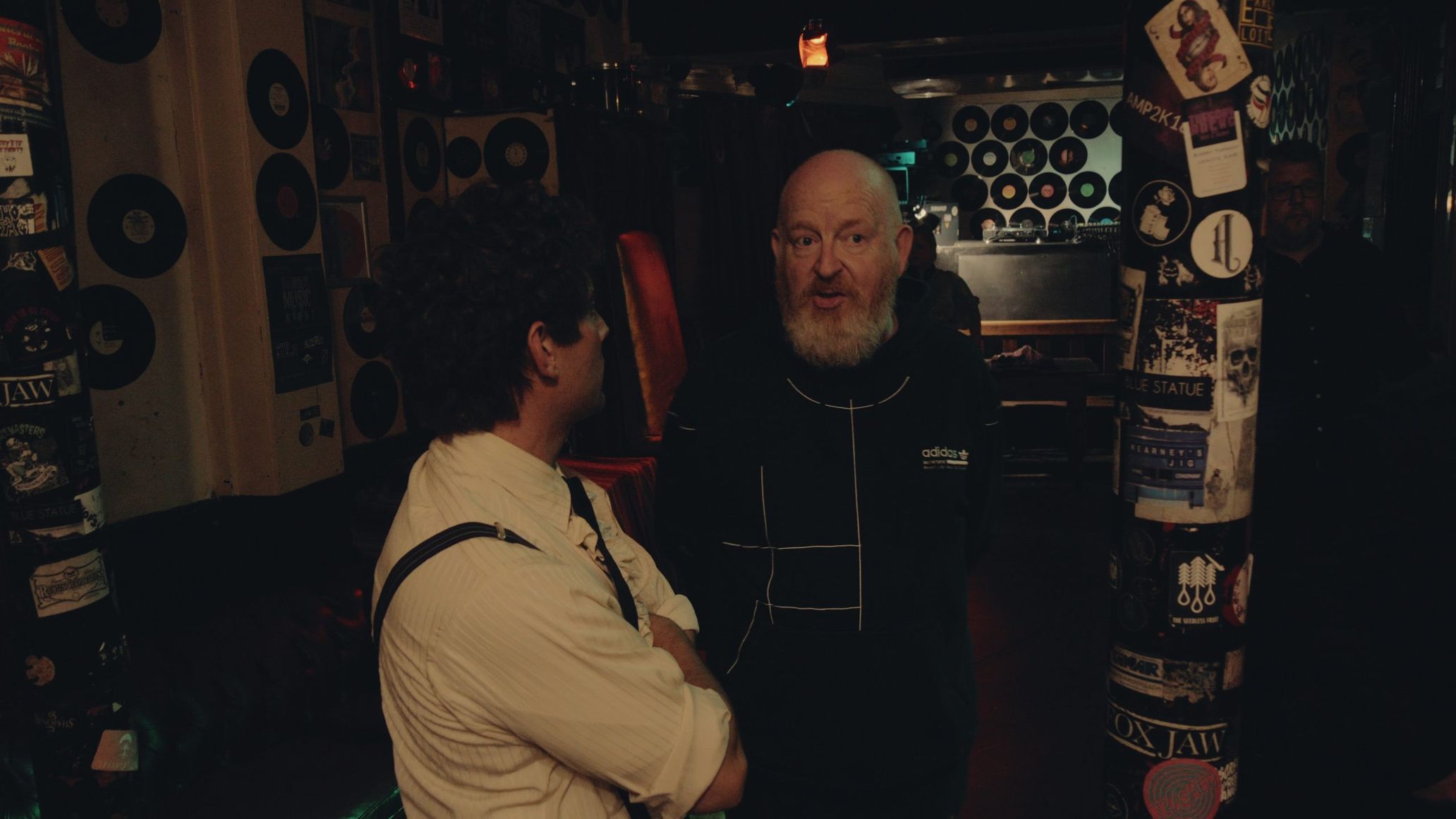
Between fiction and documentary
−−The film, obviously, is not a documentary, but fiction based on a true story― but many people who’ve seen the film might believe everything in the film actually happened. Before the project was realized, did you make any requests [of the filmmakers]?
Alan McGee(Alan): No. When you get Irvine Welsh, who’s a genius, to write a script for you, it would be foolish to try and edit Irving Welsh, so I just went along with it, to be honest.
–How did it feel to see somebody like Ewan Bremner, of course famous for his performance in Trainspotting, portray you in the movie?
Alan: I loved it, I love Ewan.
−−In the film, your character wears t-shirts from the acts you managed, like The Jesus and Mary Chain. Did you ever actually wear your own band’s t-shirts?
Alan: I think that’s just Irving Welsh.
−−What’s your dynamic with Danny and Irvine? What kind of values do you feel you share with them?
Alan: Well, Irvine brought Danny Boyle, and I’ve never met Danny Boyle, so I don’t know. But when he decided to produce it, the film got made, so that’s fantastic. I’ve never actually met Danny Boyle. But I’m best friends with Irvine Welsh, and I love him.
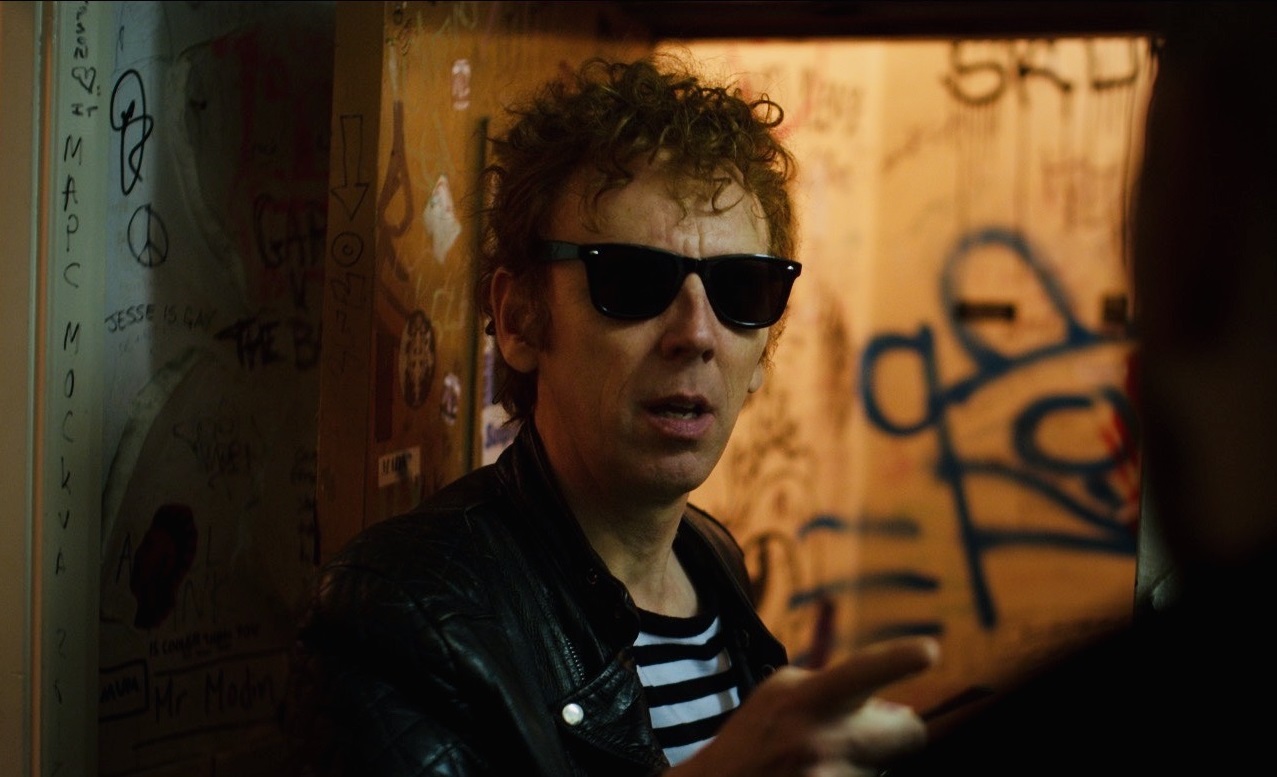
−−What do you think you have in common with Irvine? Or in what ways do you differ completely?
Alan: He’s a communist. I’m not, I’m a capitalist. It’s pretty fundamental. (Laughs). But he’s my friend, one of my best friends. He’s a genius, you know what I mean.
−−Another friend, of course, is Bobby [Gillespie]— do you know if he’s seen the film?
Alan: Yeah, he thought it was funny.
−−What about your other friends― or even enemies― that are in the film? Did they share with you what they thought about the film?
Alan: Everybody thinks it was funny, you know what I mean.
−−Yes. I was amazed at how much the actor who played Liam Gallagher resembled him back then.
Alan: Yeah, Liam chose that guy. He was good.
−−I see.
Alan: He chose that guy to play him.
−−The guy who plays Noel doesn’t look like Noel at all.
Alan: There was a funny moment with that, because the producer, Shelly Hammond, was sending me all these Liam lookalike actors, and then she sent me at the last minute this guy, and I went “Who’s he supposed to be playing?” And she’s from North England, and she went “Noel.” And I was like “It doesn’t fuckin’ look like Noel!” And she was like “But we’re gonna get his nose right.” A prosthetic nose, I think he got. He plays the part well. But I’m not sure he looks like Noel Gallagher.
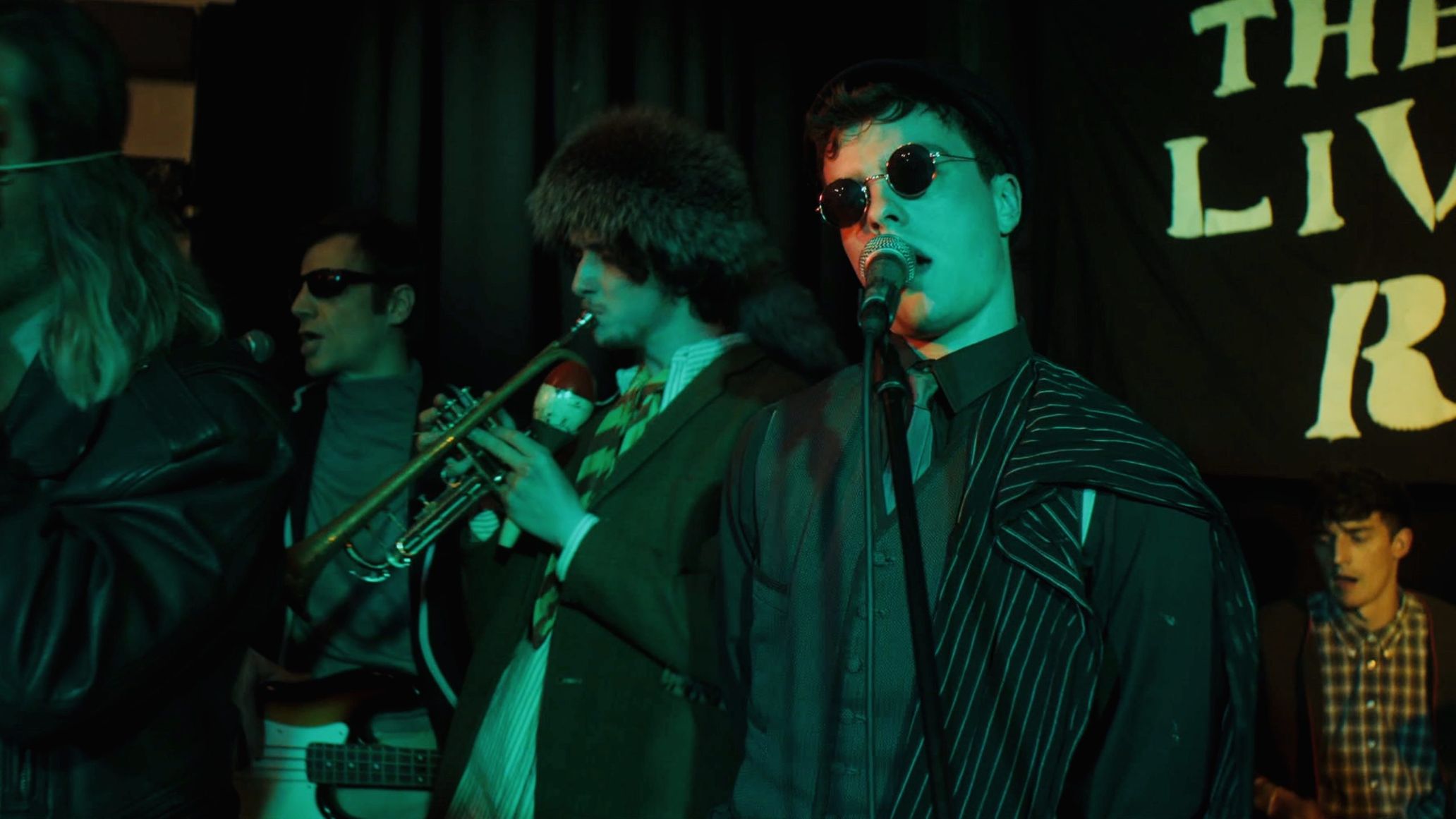
What happened after Creation Records became the world’s largest indie label
−−Anybody who knows Creation knows, especially after the debut of Oasis, how you had struggles with drug and alcohol addiction. Many of the members from other acts you worked with also had similar experiences— do you feel those experiences are more easily overcome for a rockstar than a businessman?
Alan: No, I don’t think it’s got anything to do with being a rockstar or a businessman. I think it’s just, you’ve got to get sober, to find it within yourself to do that. Some people can do that, some people can’t. It’s difficult.
−−Obviously when you’re running a business, there are moments when you’re required to make huge decisions, and if you’re not sober, of course, that would certainly affect it…
Alan: Yeah, it’s just, sobriety’s not about what you do, it’s about who you are. Nobody knows what’s going on at every end of everyone’s life.
−−Do you ever think that if you had been sober at certain times when you were running Creation you could have been more successful, say, become a Billionaire?
Alan: I don’t really care, anyway. I mean, I never did it for the money, I just happened to make a lot of money at one point. I was just doing it cause I didn’t want a real job. It’s true.
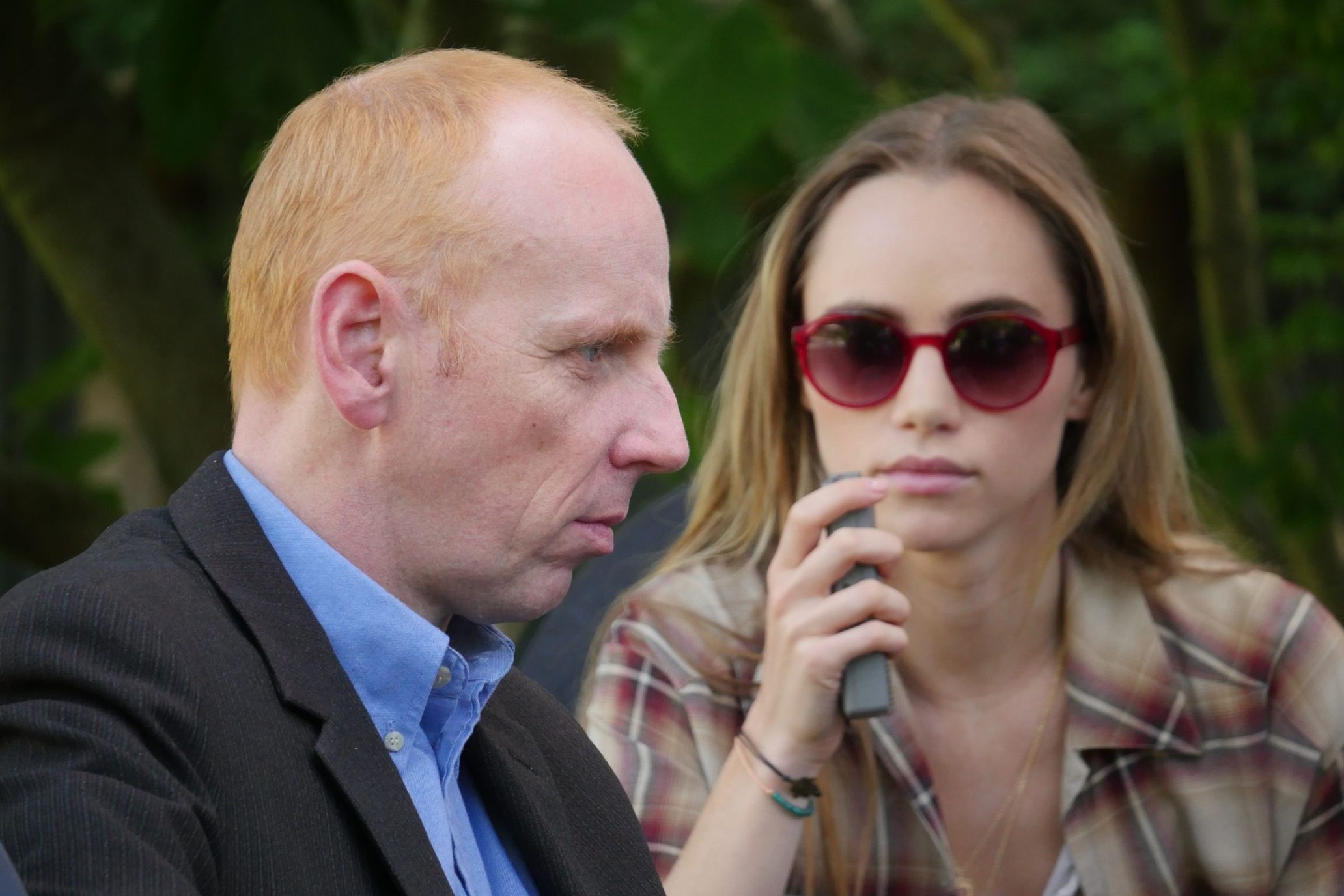
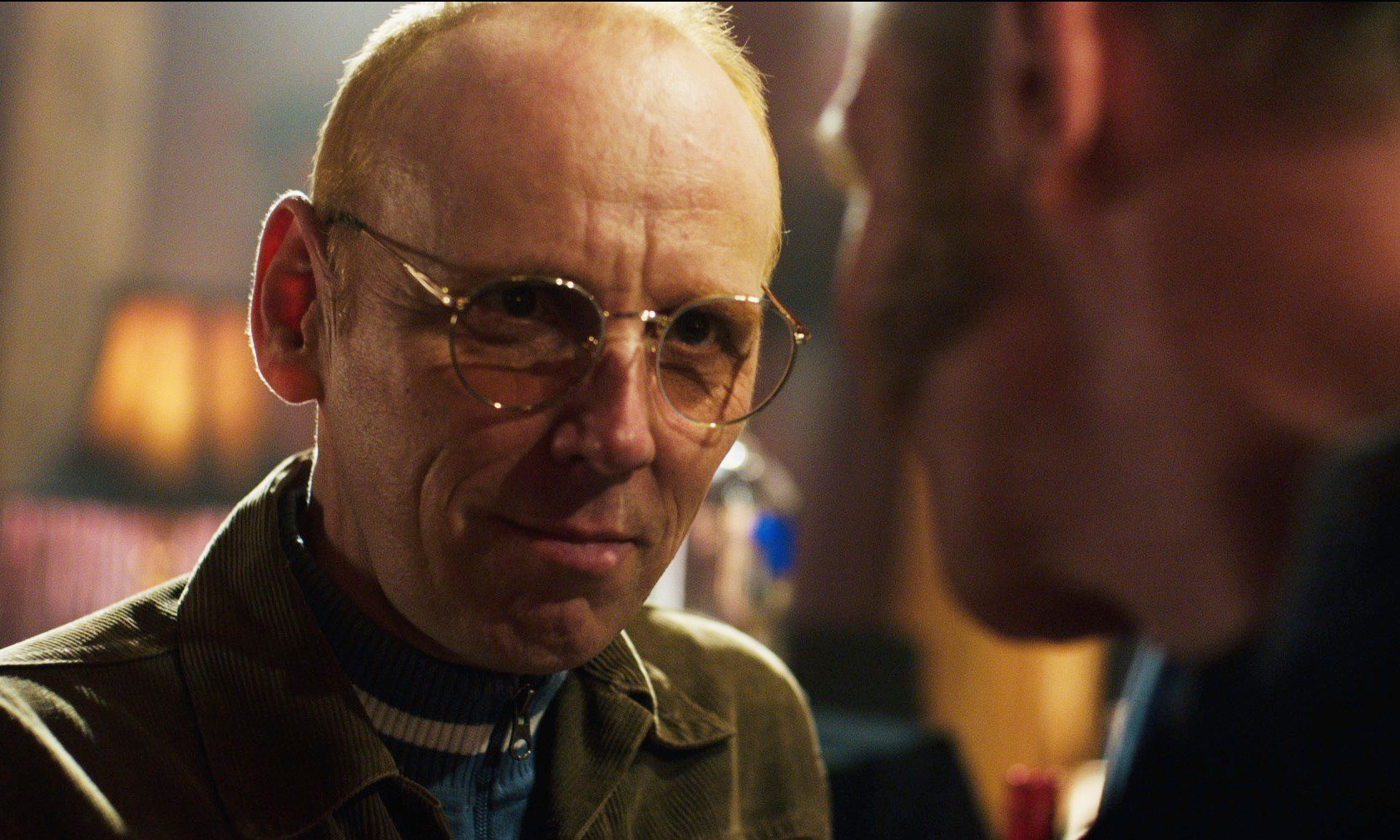
−−As you probably know well, the acts that debuted under Creation have always been very popular in Japan, both then and now― what do you think is the biggest reason why?
Alan: Maybe Japanese people have good taste. We love Japan, all of us, we’ve always loved Japan. Primal [Scream] was really bigger in Japan than they ever were anywhere else, really, weren’t they?
−−But don’t you find it a little strange? As you probably know, Japanese are kind of divorced from drugs…they’re not as widely available as they are in the West, as you’ve probably experienced yourself. Even weed, it’s not something we could ever fathom would be legalized in Japan— in a country like that, you have a label with these artists who are, well, druggies, and people here somehow connect with their music.
Alan: I think they were all doing it behind their backs. I’ve been to Tokyo more times than I can count. So maybe the Japanese don’t need drugs.
−−Oasis, of course, is the biggest act you’ve worked with— what do you think is the biggest difference between Oasis and the other acts you’ve worked with?
Alan: Hits, they had the hits.
−−They had luck as well as talent.
Alan: Maybe it’s luck, but I don’t think Oasis were lucky. I think Oasis were just good.
−−You, yourself, had a band for a time too― which acts that you worked with made you most jealous as a musician?
Alan: TV personalities.
−−This film is a very accurate portrayal of that part of the band. Not only does it feature the leader, Dan Tracy, but also Edward Ball, who in later years was also a business partner in the label’s operation.
Alan: I really like Dan and Edward. But I never thought I was less talented than them. If you feel that way after watching the film, that’s part of Irving’s creation. I had talent too. Well, I suppose you can become famous without any talent. I mean, there’s loads of people who are famous in Britain, don’t really do anything, they’re just celebrities cause they were on a TV show or something. But in music, to be respected, you have to have talent.
−−In the climax of the film, there is of course the bitter moment were you support Tony Blair and the labor party, and we see the Indies taken over by this huge capital corporate. It’s been 25 years since then— when you look at Britain now, from the music scene, at least, it doesn’t seem like much has changed. How do you think the situation has changed?
Alan: Well politically, Brexit’s happened, and that’s terrible. But you’ve got to understand, that last bit of the film, that’s just Irving. I would never go and be a rebel always.
−−If you could use a time machine and return to a specific day in your life, when would that be, and what would you re-do?
Alan: In my own life? I don’t really know.I think everyone’s got regrets. But I don’t live my life thinking I should’ve done this, should’ve done that. I try to just live for now. Just be happy. To just enjoy life. I mean, I’ve only got, at best, 20 more years, I’m 61. So, to enjoy it. I’ve become a hippy. [Laughs]
Alan McGee
Born in Glasgow, Scotland, Alan McGee founded Creation Records in 1983. He played central role in the indie rock scene in the 1980s and 1990s, signing with Jesus & The Merry Chain, My Bloody Valentine, Teenage Fanclub, Oasis and his classmate Bobby Gillespie’s Primal Scream. His label had been called “the world’s most successful indie label,” with an influence rivaling that of the majors. Even after the closure of Creation, he maintained his energetic activities, including the launch of a new label, Poptones.
Edit Jun Ashizawa(TOKION)

